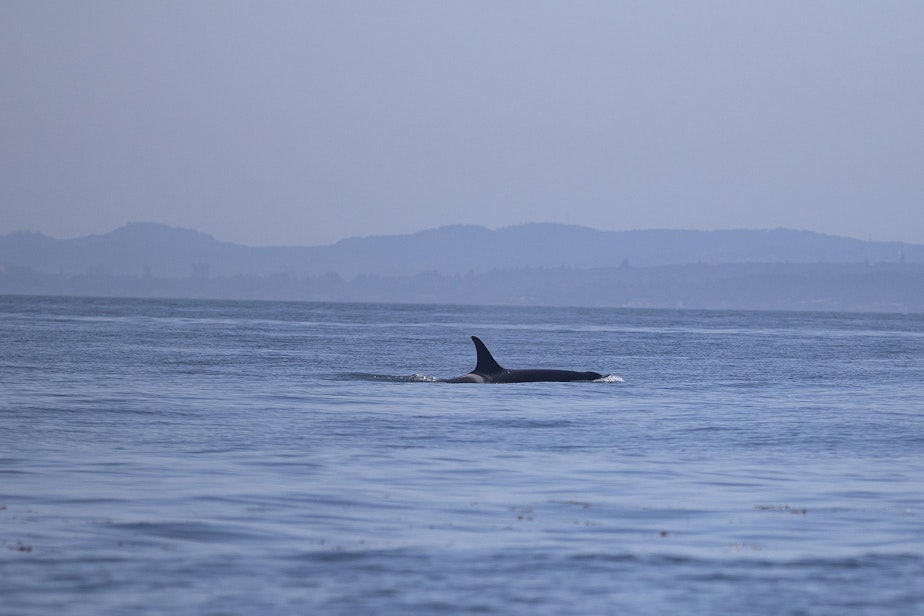The hopeful orca study, and the backlash that ensued

We've been hearing for years now about the dwindling supply of Chinook salmon, the primary food source of the endangered population of southern resident orcas.
But recently, researchers at the University of British Columbia published a paper that found an abundance of Chinook salmon in one area of the Strait of Juan de Fuca where the southern residents forage for food. Researchers here in the Seattle area "stomped on it," according to Lynda Mapes, who covers the environment for The Seattle Times.
This interview has been edited for clarity.
Kim Malcolm: Let's start with this research from the University of British Columbia. What did it find?
Lynda Mapes: It didn't find very much. They basically said, 'We looked in one spot in the Strait of Juan de Fuca, and we saw a whole lot of Chinook.' Their point was, everyone would have thought that where the southern residents live, you'd see an empty pantry, whereas where the northern residents live, lots and lots of fish, and they found the opposite. That is, in fact, all they found.
These findings have been criticized now by some other researchers. What kinds of questions and criticism are they raising?
This paper really was stomped on by most of the people who study the southern residents here in the Puget Sound region. They said, first of all, they didn't even look in the right place, that their design of their experiment was all wrong. There's concern that people will read a lot more into this than either the researchers said themselves, or should be read in with just one finding.
Sponsored
You've been reporting on orcas for some time now. What does this debate tell us about what we need to do to help orcas survive?
I felt great about this. I felt like the scientific process really works. There was an experiment done, and a robust response by other people who are experts in the field saying, wait a minute, this was wrong. In a way, just look at the whales. There’s just no question they're in trouble. There are only 73 of them left. That's as few as there were at the end of the capture era 40 years ago. We're not getting anywhere in terms of recovery.
There's some hope. We've got three pregnant females, but 73 is 73, and those numbers keep going down. We're not recovering this unique and special family of whales, the J, K, and L pods that frequent Puget Sound, unique in the world, an ancient society here in these waters for 10,000 years. They have a right to be here, and they're barely hanging on.
What do you think could happen next here in this debate about food sources for the orcas?
At the end of the day, this is really very simple. They need a place to live and something to eat. As long as we have habitat that's usable for the salmon and orcas, they will use it and they will thrive.
Sponsored
These are not some crybaby species. The orcas are the top predators in every ocean of the world.
We're at the stage now in Puget Sound and beyond of improvements that need to be made that cost hundreds of millions of dollars. Until you have a dedicated fund for salmon and orcas, we're never going to win this.
I hope people can also feel optimism listening to this, because we actually know what to do, and we know that it works every time: Protect the habitat that still functions and works, fix what we broke where we can fix it, and keep up the pace of the fixing and the protection so that we don't keep losing ground to development and growth. That's a pretty simple prescription, fix what you can, and don't break anything else.
This interview was lightly edited for length and clarity.





